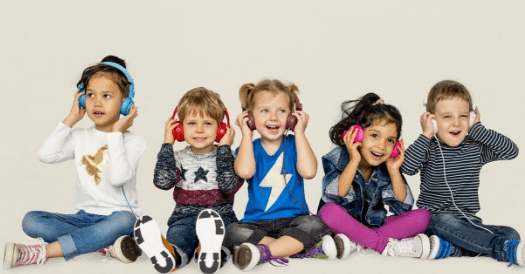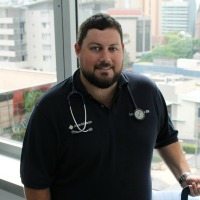It’s school holidays and many children will be on their smart devices with unlimited screen time – more often than not, listening to sound using headphones.
Hearing loss has become a major concern as children spend long periods of time listening to their favourite tunes, playing games or streaming the latest movies online.
Ears are one of the most sensitive and delicate parts of the human body. Damage caused by loud noise is irreversible, so it is vital parents and guardians focus on prevention.
Brisbane after hours doctor, Ryan Harvey said ears start to experience damage from approximately 120 decibels. Pain registers at 140 decibels.
“To conserve our hearing and prevent damage, a good rule is 60 per cent of the volume for 60 minutes a day,” Dr Harvey said.
“Alarmingly, we’re seeing one in five teenagers experiencing some sort of hearing deficiency, which can largely be attributed to the over-use of headphones at maximum volume.
“If your child is using headphones, invest in a noise cancelling set so the volume doesn’t need to be maxed out for them not to hear background noise.”
Parents with younger children are advised to consider purchasing ear mufflers if taking their kids to a concert or loud venue.
Signs of hearing loss:
- Ringing in the ears
- Difficulty understanding speech
- Muffled sounds
Fast facts:
- Sound travels at the speed of about 343 metres per second or 1,236 kilometres per hour.
- The whole area of the middle ear is no bigger than an M&M.
- Being near the stage at a rock concert can expose you to noise levels of between 105 and 110 decibels, which will begin to damage your hearing in less than one minute.
If you need more information or are concerned about your child’s hearing, start by seeing your GP. You can find a local GP using the doctors.com.au search.
About the author:

Dr Ryan Harvey is a General Practitioner providing after-hours medical care to children and families. Dr Harvey is experienced in paediatrics and has travelled extensively, administering medical care to children in remote overseas communities. He now works with many families, administering acute care when unexpected medical situations arise overnight. Dr Harvey is one of the many doctors with House Call Doctor, an organisation that provides urgent after-hours medical care to residents in Queensland, when their regular GP is closed.

 Need a doctor now? Speak to a GP in minutes via phone or video consult.
Need a doctor now? Speak to a GP in minutes via phone or video consult.
great article